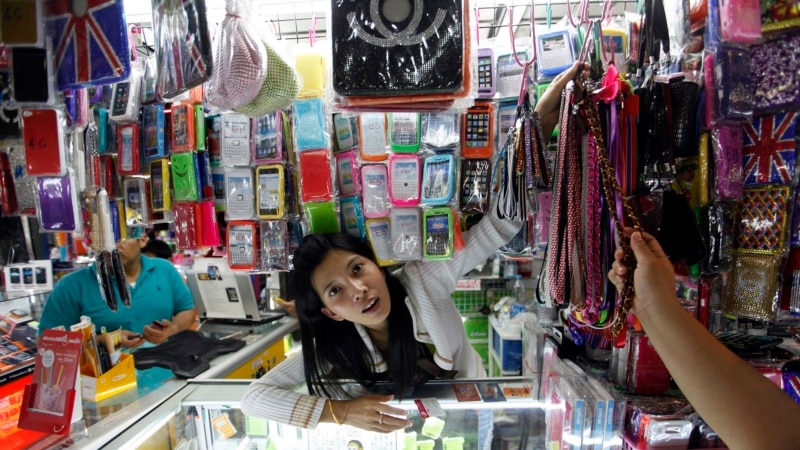
China continues to be the top global source of counterfeit products, but it is far from the only major concern regarding pirated goods, according to the annual notorious-markets list released Thursday by the office of the U.S. trade representative. The coronavirus pandemic, with its resulting restrictions on tourism and movement, has meant some markets known for openly selling counterfeit goods currently have no or very few problematic stores doing business, according to the report. Such notorious venues include the MBK Shopping Mall, Patpong Street Market and Soi Nana in Thailand, noted the USTR. Also on the list are other physical markets around the world with long-standing reputations as hubs for fake goods. These include the Central Market in Cambodia’s capital, Phnom Penh; Anfu Market in China’s Fujian province, which specializes in counterfeit shoes; Beijing’s Silk Market; Palika Bazaar and Tank Road in New Delhi, India; the 80-square-block Tepito in Mexico City; and Moscow’s Dubrovka Market, with an estimated 700 vendors. Toronto mall The problem is not limited to the developing world. Toronto’s Pacific Mall, regarded as the largest indoor Asian shopping mall in North America, is back on the annual list after cleaning up its act several years ago, according to officials. The USTR said the mall’s management made efforts, along with law enforcement raids on sellers of alleged counterfeit goods, but since 2018, sales of bogus items have surged “with Pacific Mall management not taking the necessary measures against sellers and law enforcement not prioritizing actions against counterfeit trade. Counterfeit luxury goods, apparel and electronics are reportedly on display or hidden under tables or in back rooms but available upon request.” Some shops trafficking in fake items have been transitioning from physical stores to e-commerce platforms "and using the physical storefronts to facilitate the fulfillment of online sales,” said the USTR report. "Online sellers of counterfeit goods have also increased efforts to evade the anti-counterfeiting processes and systems established by governments and e-commerce platforms by, for example, using social media advertisements and influencers, hidden links and drop shipping schemes.” Among the most problematic websites: the Baidu Wangpan cloud storage service in China, for sharing pirated movies and television programs; Bukalapak, one of the largest e-commerce markets in Indonesia; e-commerce website and mobile app IndiaMART; Chinese social commerce app Pinduoduo; and the mobile app known as the Netflix of piracy, Popcorn Time. One of the most vocal in promoting piracy remains the legacy site ThePirateBay. "Authorities in Argentina, Australia, Austria, Belgium, Brazil, Denmark, Finland, France, Iceland, Indonesia, Ireland, Italy, Malaysia, the Netherlands, Norway, Portugal, Spain and the United Kingdom have issued orders blocking access to this site," the USTR said. “Right holders report that this site does not respond to any notice-and-takedown requests.” WeChat The annual report scrutinizes the WeChat instant messaging platform, which has more than 1 billion active monthly users. "WeChat, along with Weixin, which is the China-facing version of WeChat, is reportedly viewed as one of the largest platforms for counterfeit goods in China,” according to the USTR review. Also of significant concern to the USTR: Rapidgator, which is one of the largest file-sharing websites in the world, and e-commerce platform Taobao, of China’s Alibaba Group. “The global trade in counterfeit and pirated goods undermines critical U.S. innovation and creativity and harms American workers,” said U.S. Trade Representative Katherine Tai in a statement. “This illicit trade also increases the vulnerability of workers involved in the manufacturing of counterfeit goods to exploitative labor practices, and the counterfeit goods can pose significant risks to the health and safety of consumers and workers around the world.”
Most Read